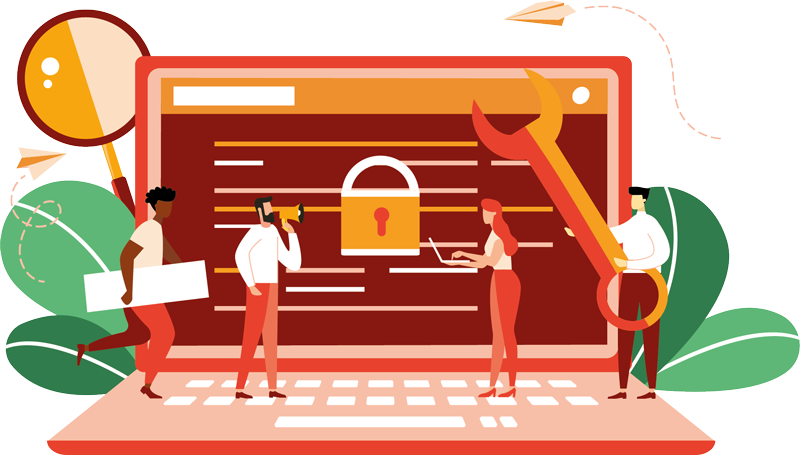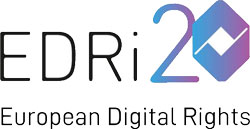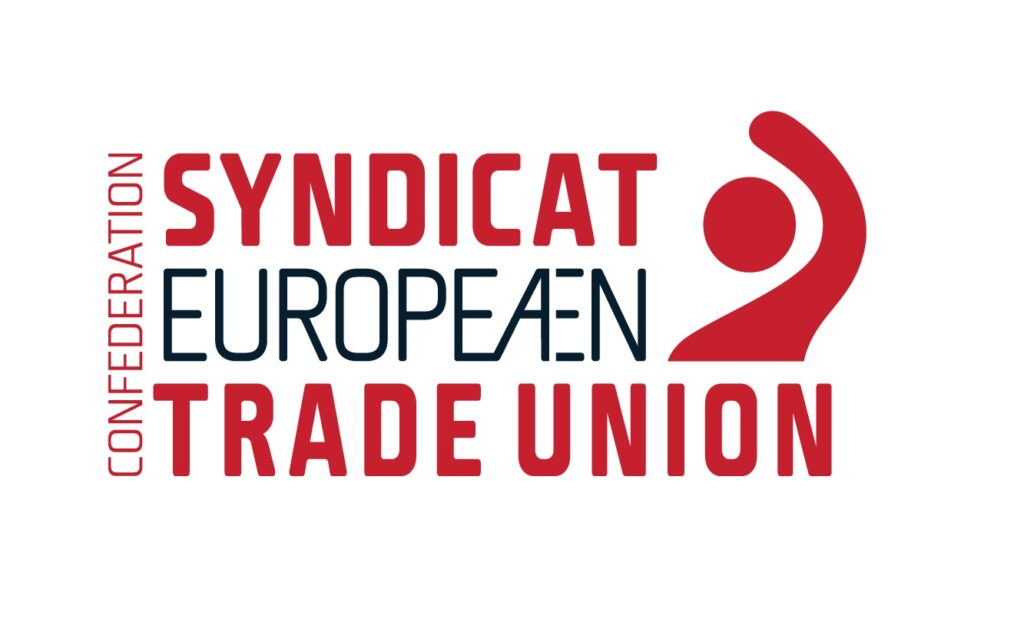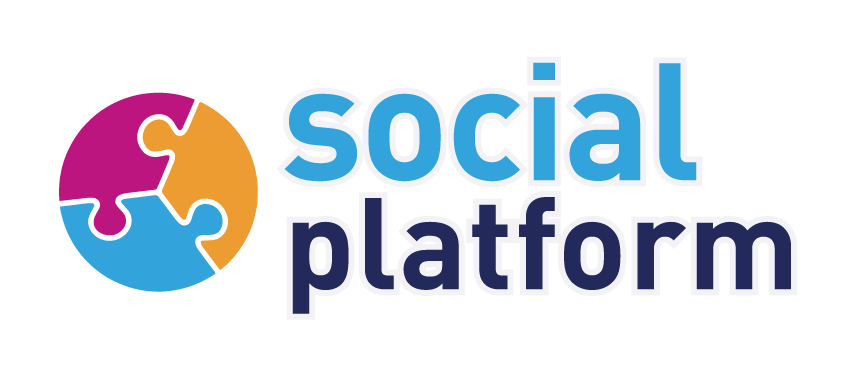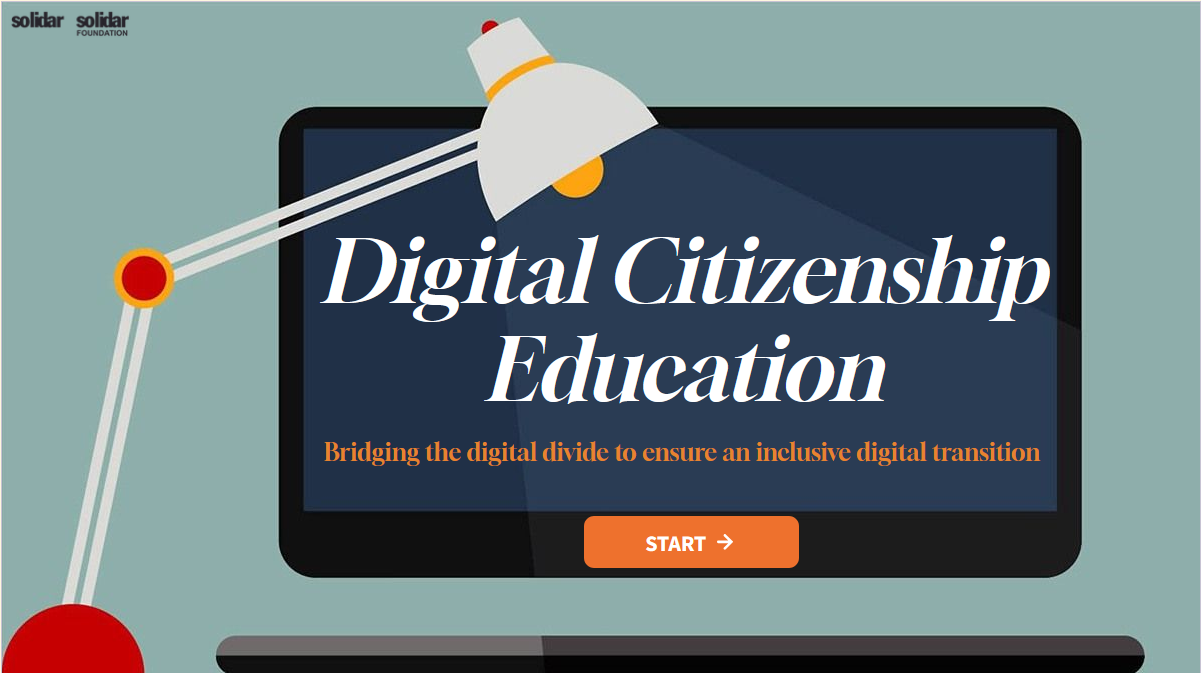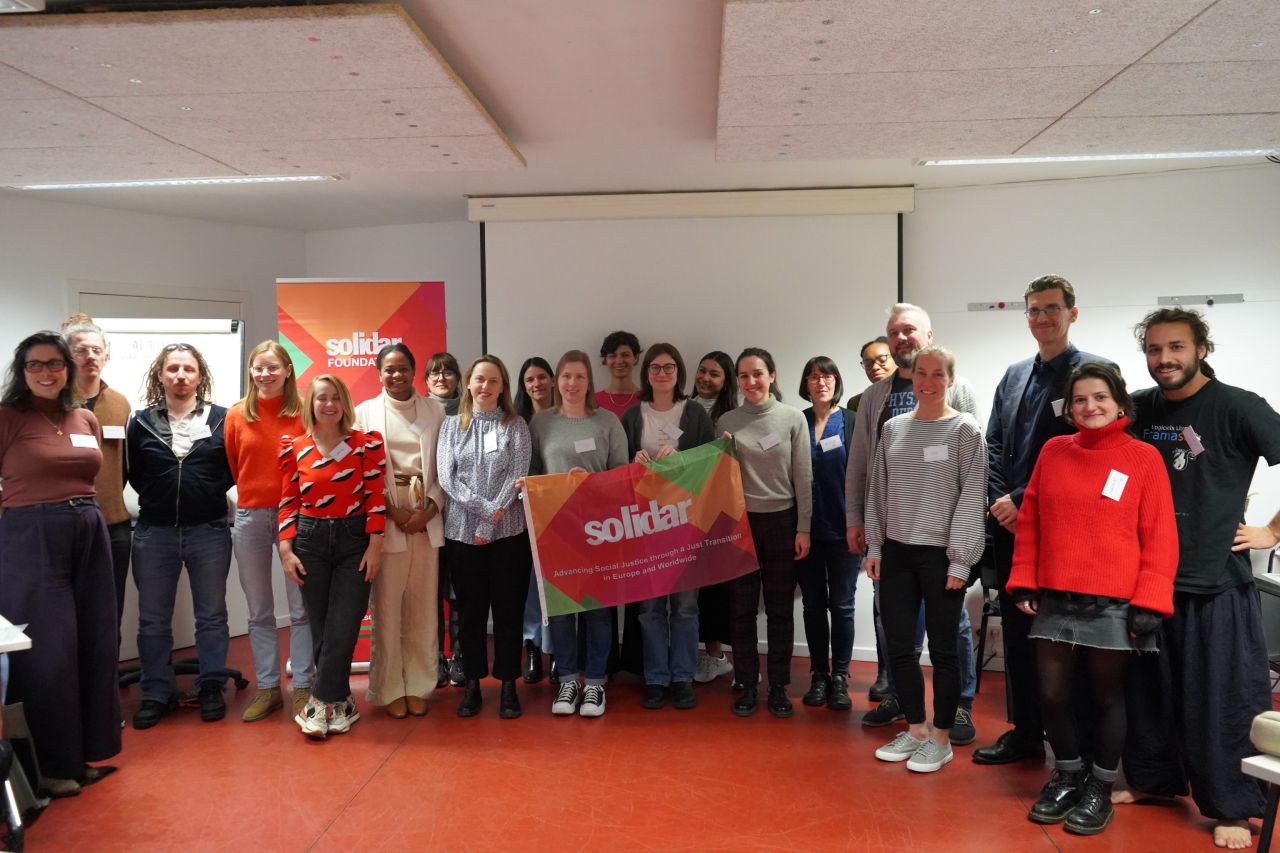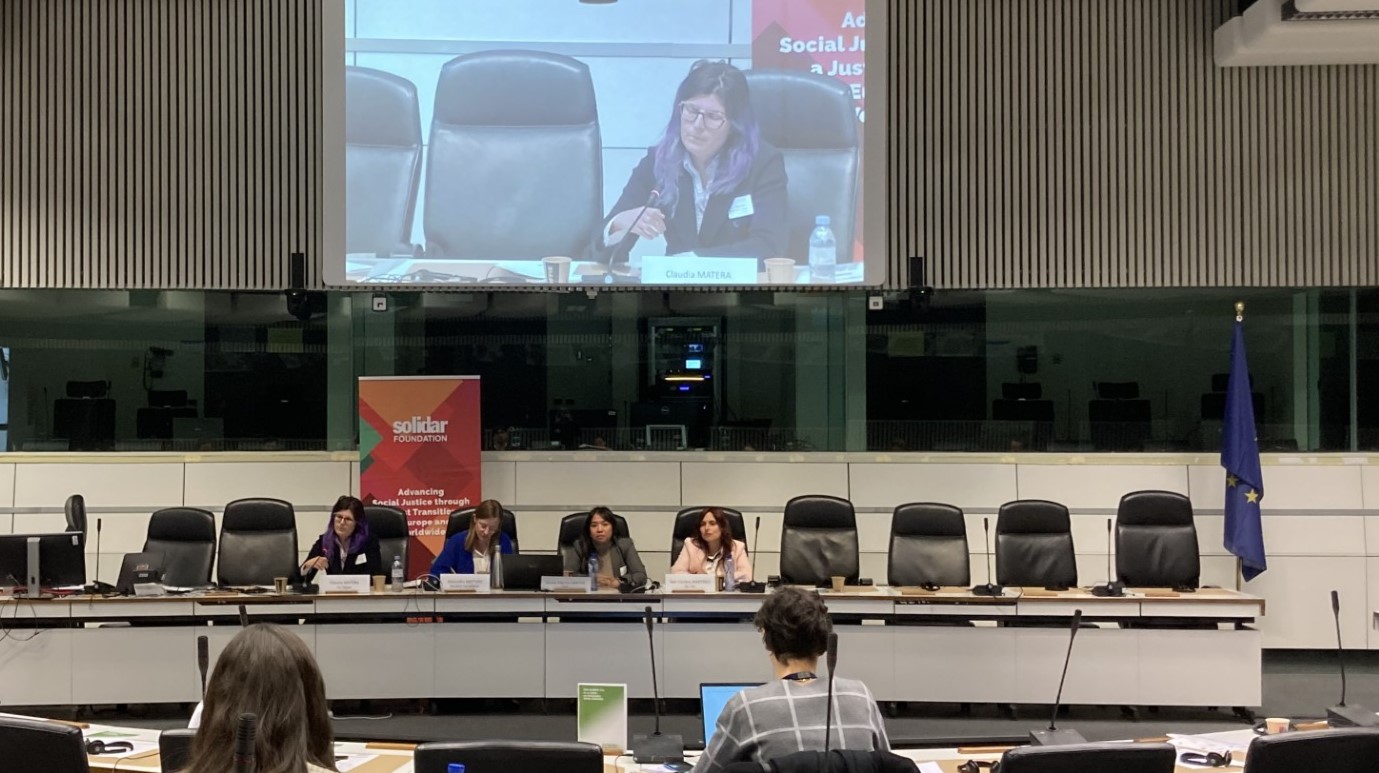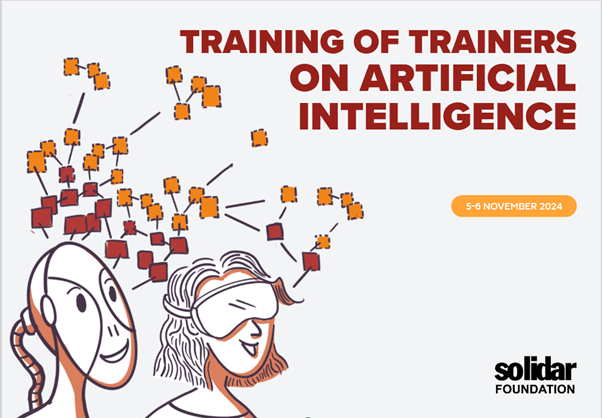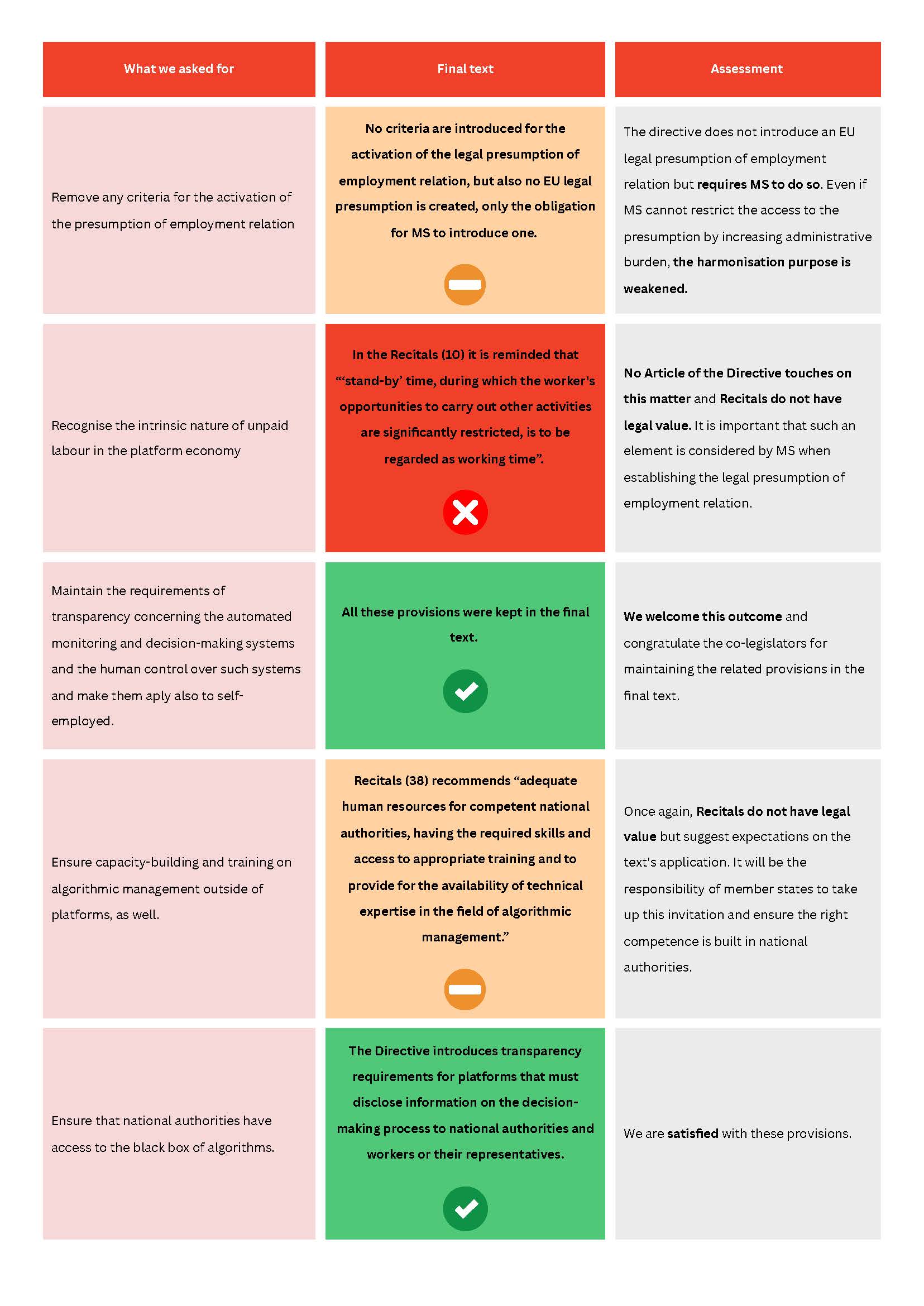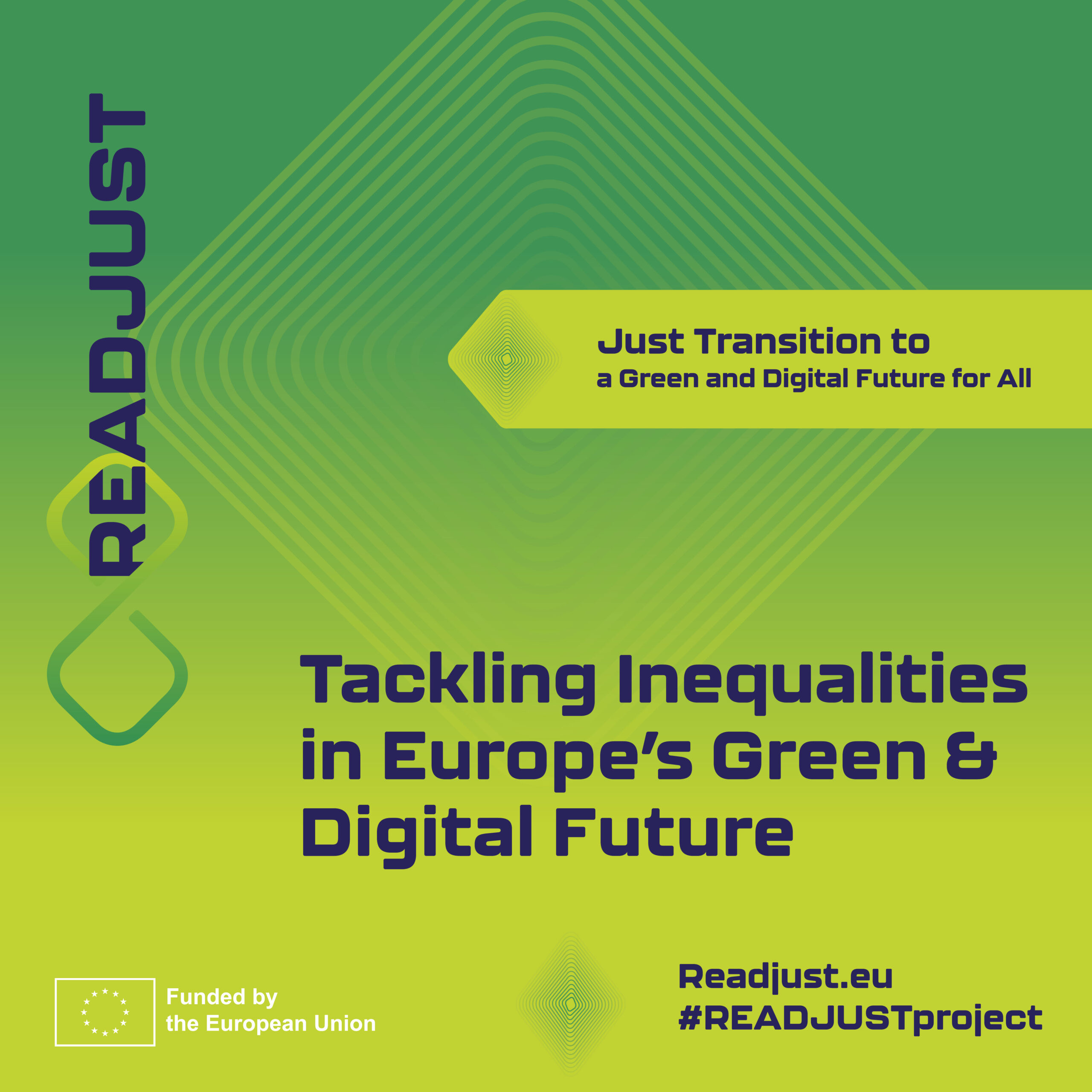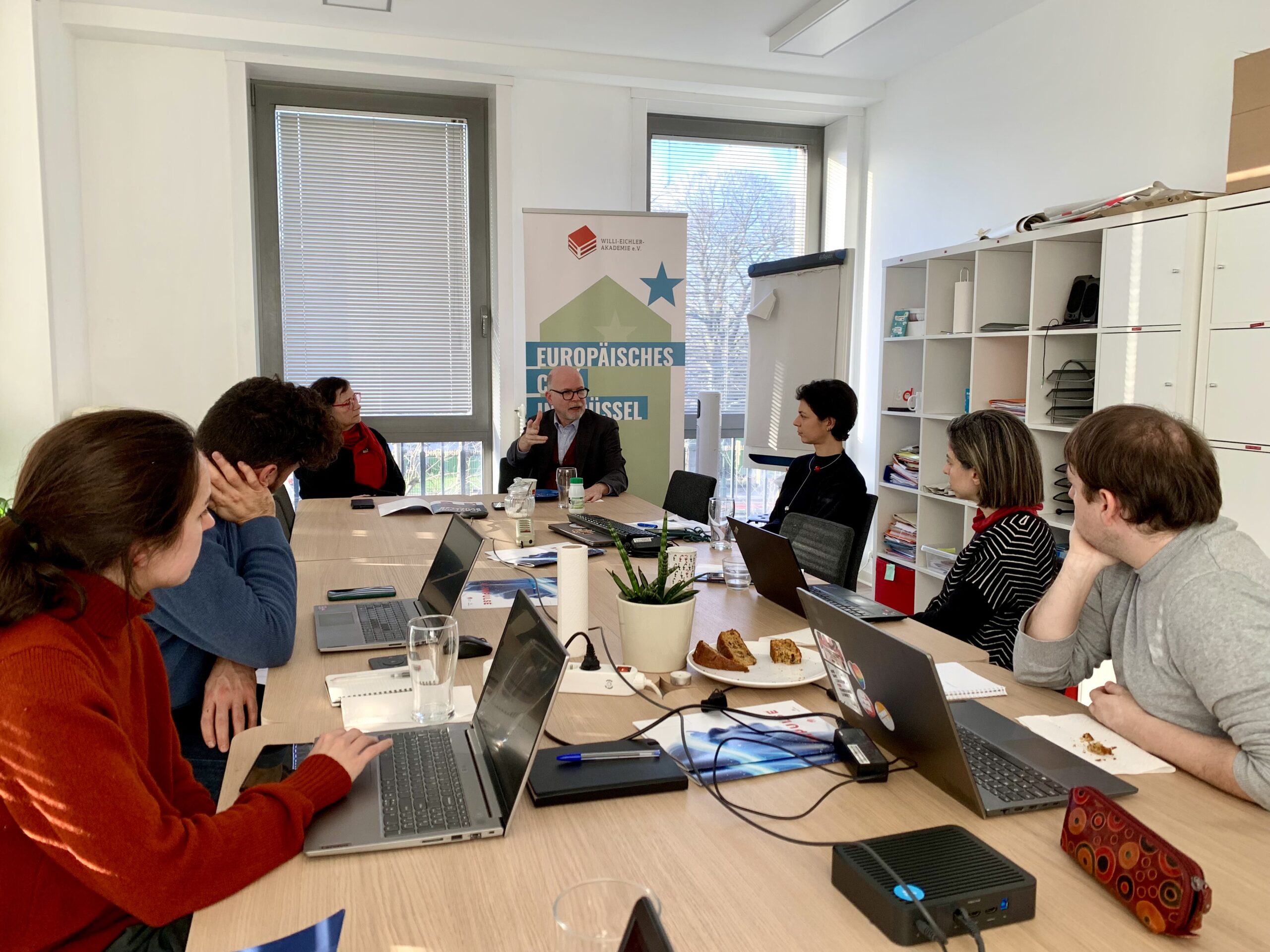A Fair Digital Transition
WHAT IS THE PROBLEM?
The unfolding digital revolution and the rapid deployment of Artificial Intelligence (AI) are impacting every single aspect of our lives. As legislation struggles to keep up, this raises a number of concerns as to whether these technologies will further exacerbate existing inequalities and discrimination.
Unregulated technologies can weaken our democratic systems and social cohesion by spreading fake news and influencing election results. They can also threaten fair working conditions through the mainstreaming of algorithmic management practices for instance in platform work, increasing surveillance systems and breaches of workers’ and people’s privacy and data protection.
In addition, the unprecedented context brought by the COVID-19 pandemic evidenced gaps in digital infrastructure and skills across Europe. It reinforces the current state of social injustice and prevents around 1.5 billion learners from accessing their universal right to education, while placing Europe in a precarious position in relation to the needed digital revolution (around 42% of Europeans are currently lacking basic digital skills). This also means that people are more at risk when it comes to data protection and digital surveillance from large technology companies.
WHAT NEEDS TO BE DONE?
Technologies should be at the service of people, enabling social progress and sustainable development. The EU should implement timely regulation to use technologies to accelerate the green transition, bridge the digital divide, ensure equal access to education and lifelong learning and to all essential services, including social services, and promote citizens’ participation in our democratic systems.
Digital Citizenship Education and Education for Global Citizenship are key to bridging the digital divide and ensuring that the digital transition is inclusive.
Civil society organisations should have a seat at the table to ensure that people are at the centre of digital developments.
The European Pillar of Social Rights and more broadly the European Social model must remain the compass guiding the application of digital technologies to the labour market, social protection systems and society at large.
WHAT IS SOLIDAR FOUNDATION DOING?
Together with its partners and members, SOLIDAR and SOLIDAR Foundation:
- Promotes Global Citizenship Education and Digital Citizenship Education to bridge the digital divide and foster the digital skills needed for a just transition, for example through participation in the ECHO network.
- Ensures that the AI Act puts people and fundamental rights first, by publishing statements and position papers together with coalitions of partners.
- Monitors the risks linked to AI and social rights in the area of migration, social protection, labour rights, etc to mitigate its effects.
- Pushes for the establishment of an ambitious EU directive on improving working conditions in platform work.
- Monitors the developments of the updated Digital Education Action Plan which ensures the coordination of the digital transition between 2021 and 2027.
- Officially participating in UNESCO’s Civil Society Organizations (CSO) for Ethics of AI and Academic Network on AI Ethics and Policy.


